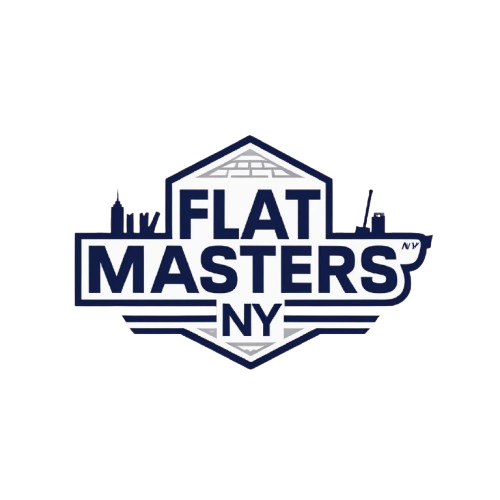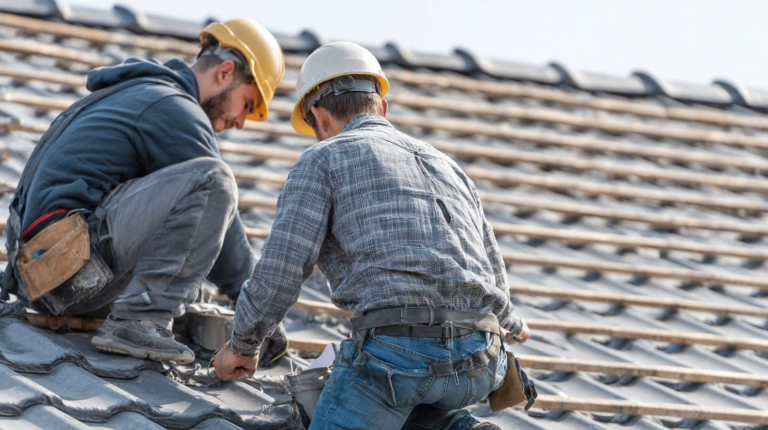Professional Flat Roof Ventilation Guide & Installation Services
Here's the thing about flat roof ventilation - most property owners in Queens don't think about it until they're dealing with moisture problems, ice dams, or sky-high energy bills. After two decades of installing and repairing flat roofs from Astoria to Jamaica, I can tell you that proper ventilation isn't just important, it's absolutely critical for your roof's longevity.
Why Flat Roof Ventilation Matters More Than You Think
Look, I've seen too many beautiful buildings in Flushing and Forest Hills with premature roof failures because nobody understood how to properly vent a flat roof. Without adequate ventilation, you're looking at condensation buildup, insulation damage, and structural issues that can cost thousands to repair. The moisture gets trapped, especially during our humid Queens summers, and creates the perfect breeding ground for mold and rot.
Last month we had a call on Northern Boulevard - a commercial building where the owner had been dealing with recurring leaks for three years. Different contractors kept patching the membrane, but nobody addressed the ventilation problem. Once we installed proper venting systems, those leaks disappeared completely.
How to Ventilate a Flat Roof: The Technical Breakdown
When people ask me how to vent a flat roof, I always start with the basics. Flat roof venting requires a balanced system that allows air to flow in through intake vents and exit through exhaust vents. It's not rocket science, but it does require understanding your building's specific needs and local building codes.
The key components include:
- Intake vents - typically installed at the roof's perimeter or lower areas
- Exhaust vents - positioned at the highest points to create natural airflow
- Proper spacing - usually one square foot of ventilation per 150 square feet of roof area
- Vapor barriers - essential for preventing moisture infiltration
Common Flat Roof Ventilation Methods
So what's really the best approach for venting a flat roof? Honestly, it depends on your building type, roof construction, and local climate conditions. In Queens, we deal with everything from harsh winters with heavy snow loads to humid summers that can create serious condensation issues.
Mechanical Ventilation Systems
For larger commercial buildings, mechanical ventilation often makes the most sense. We install exhaust fans that actively pull hot, humid air out of the roof cavity. These systems give you complete control over airflow rates and can be adjusted based on seasonal needs. I've installed hundreds of these systems throughout Queens, and they're particularly effective for buildings with HVAC equipment on the roof.
Natural Ventilation Approaches
Residential and smaller commercial buildings often benefit from natural ventilation systems. Ridge vents, soffit vents, and passive exhaust vents create airflow without requiring electricity. The challenge with flat roofs is creating enough temperature differential to drive the air movement - that's where proper vent placement becomes crucial.
Step-by-Step Guide: How to Properly Vent a Flat Roof
Here's how we approach flat roof ventilation installation at Flat Masters NY. This isn't a DIY project - roofing work in New York requires proper licensing and permits - but understanding the process helps you make informed decisions.
- Assessment and Planning - We start by calculating the roof area, identifying potential problem zones, and reviewing the existing insulation and vapor barrier systems. Every job is different.
- Intake Vent Installation - These go in first, typically along the roof perimeter where cooler air can enter the system.
- Exhaust Vent Placement - Strategic positioning at high points ensures proper air circulation patterns.
- Membrane Integration - Critical step where we ensure all penetrations are properly sealed and flashed.
- Testing and Adjustment - We verify airflow patterns and make any necessary modifications.
I can't tell you how many times we've been called to fix ventilation systems that were installed incorrectly. Poor flashing around vent penetrations is probably the number one cause of leaks in flat roof systems.
Avoiding Common Ventilation Mistakes
Look, I don't care what other contractors might tell you - there are specific ways to mess up flat roof ventilation that I see repeatedly across Queens. Inadequate vapor barriers, improper vent sizing, and poor placement are the big three.
Just last week on Ditmars Boulevard, we had to completely redo a ventilation system that another contractor had botched. They installed way too many exhaust vents without adequate intake, creating negative pressure that was actually pulling moisture into the building. That's exactly backwards from what you want.
The salt air from the East River means we always have to consider corrosion resistance when selecting vent materials. Standard galvanized steel vents might work fine in Ohio, but here in Queens, you need marine-grade materials or you'll be replacing everything in five years.
Material Selection and Installation Considerations
When it comes to flat roof venting materials, quality matters more than saving a few bucks upfront. We typically use powder-coated aluminum or stainless steel vents for longevity. The initial cost difference is maybe $50-100 per vent, but the lifespan difference is dramatic.
Membrane compatibility is huge too. If you've got a TPO roof, you need vents specifically designed for heat-welded installations. EPDM systems require different flashing approaches. Modified bitumen has its own requirements. Using the wrong materials or installation methods will void your roof warranty faster than you can say "water damage."
Energy Efficiency and Cost Benefits
Proper flat roof ventilation can seriously impact your energy costs. We've had customers see 15-20% reductions in cooling costs after installing adequate ventilation systems. The reason is simple - when hot air gets trapped in your roof assembly, your HVAC system has to work overtime to maintain comfortable indoor temperatures.
During Queens' brutal summer months, an unventilated flat roof can reach surface temperatures over 160°F. That heat soaks through the insulation and drives up cooling costs. A properly ventilated system keeps those temperatures 20-30 degrees lower.
Maintenance and Long-term Performance
Here's something most contractors won't tell you upfront - flat roof ventilation systems need regular maintenance. Vent screens get clogged with debris, especially during fall leaf season. Bird nests, particularly from our aggressive Queens pigeons, can block exhaust vents completely.
We recommend annual inspections, preferably in spring before the heavy weather season. It takes maybe 30 minutes to check all your vents, clear any blockages, and verify that the flashing is still tight. Small maintenance now prevents major problems later.
My foreman Carlos always says the best ventilation system is the one that's properly maintained. He's been with us for twelve years and has seen every possible failure mode.
Local Building Codes and Permit Requirements
In Queens, any roof work that involves structural modifications or new penetrations requires permits through the Department of Buildings. Ventilation system installation definitely falls into this category. We handle all the paperwork as part of our service - it's included in our project pricing.
The current NYC Building Code has specific requirements for ventilation rates based on building use and occupancy. Commercial buildings have stricter requirements than residential, and there are special provisions for buildings with flat roofs over occupied spaces.
When to Call the Professionals
So when should you call Flat Masters NY for ventilation help? If you're experiencing any moisture issues, unexplained energy cost increases, or if your current roof is more than ten years old without adequate ventilation, it's time for a professional assessment.
We offer free ventilation consultations throughout Queens. Our licensed contractors (License 704521) can evaluate your current system and recommend improvements that make sense for your building and budget.
After installing ventilation systems on over 2,000 flat roofs in Queens, we know what works in our local climate. Every building is different, but the principles of proper airflow remain consistent.
Don't wait until you're dealing with water damage or massive energy bills. Proper flat roof ventilation is an investment in your building's long-term performance and your peace of mind. Give us a call at (917) 994-7618 and let's discuss what your roof really needs.


